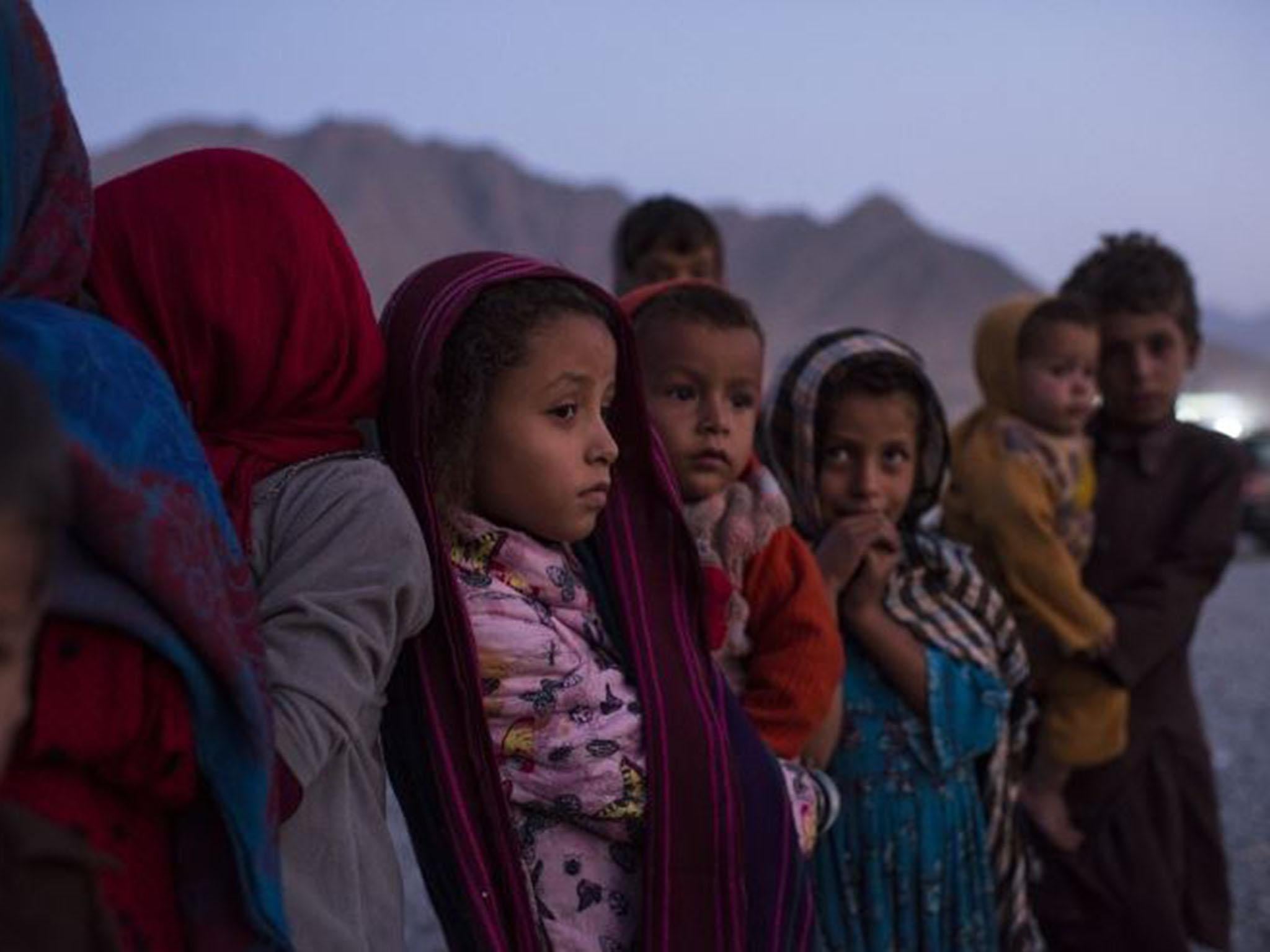Record number of children killed in Afghanistan as Isis expands operations
UN records a 10-fold increase in Afghan casualties as a result of Isis attacks

Your support helps us to tell the story
From reproductive rights to climate change to Big Tech, The Independent is on the ground when the story is developing. Whether it's investigating the financials of Elon Musk's pro-Trump PAC or producing our latest documentary, 'The A Word', which shines a light on the American women fighting for reproductive rights, we know how important it is to parse out the facts from the messaging.
At such a critical moment in US history, we need reporters on the ground. Your donation allows us to keep sending journalists to speak to both sides of the story.
The Independent is trusted by Americans across the entire political spectrum. And unlike many other quality news outlets, we choose not to lock Americans out of our reporting and analysis with paywalls. We believe quality journalism should be available to everyone, paid for by those who can afford it.
Your support makes all the difference.Civilian casualties in Afghanistan rose to new highs in 2016, driven by more Islamic State attacks, the most deaths and injuries from air strikes since 2009 and a rising toll of child victims of unexploded ordnance, the United Nations said.
A total of 3,498 civilians were killed in the conflict and 7,920 were wounded in 2016, a combined increase of 3 percent over the previous year, U.N. investigators said in an annual summary issued on Monday.
"Against a backdrop of protracted ground fighting, the battlefield permeated civilian sanctuaries that should be spared from harm, with suicide attacks in mosques; targeted attacks against district centres, bazaars and residential homes; and the use of schools and hospitals for military purposes," the United Nations said.
About 61 percent of all civilian casualties were caused by anti-government groups like the Taliban and Islamic State, it said.
The United Nations attributed at least 4,953 deaths and injuries to the Taliban, but in a shift in 2016, investigators documented a 10-fold increase in casualties caused by Islamic State militants, who often target members of the Shiite Muslim minority.
At least 899 deaths and injuries were attributed to Islamic State, which has been a relatively minor faction in Afghanistan, but last year launched an increasing number of suicide attacks.
Last year saw the highest number of civilian casualties from suicide attacks since the United Nations began tracking such numbers in 2009.
Afghan security forces caused about 20 percent of the overall casualties, while pro-government militias and international forces caused 2 percent each.
Among the deadliest tactic used by government forces was the indiscriminate use of heavy weapons like mortars in populated areas, the United Nations said.
As the Afghan air force got more attack aircraft and the United States ramped up its air campaign against both Islamic State and the Taliban, casualties caused by air strikes increased 99 percent compared with 2015, hitting levels not seen since 2009.
Air strikes by international warplanes resulted in at least 127 civilian deaths and 108 injuries in 2016, while the Afghan air force accounted for at least 85 deaths and 167 injuries, the United Nations said.
Investigators were not able to attribute responsibility for 38 deaths and 65 injuries from air strikes.
U.S. officials have only acknowledged possible civilian casualties in one incident in Kunduz province in November, when the United Nations said as many as 32 noncombatants were killed and 26 wounded in a joint U.S.-Afghan raid.
Casualties among children spiked by 24 percent in 2016, with 923 dead and 2,589 wounded, largely as a result of a major increase in casualties from unexploded ordnance.
Reuters
Join our commenting forum
Join thought-provoking conversations, follow other Independent readers and see their replies
Comments